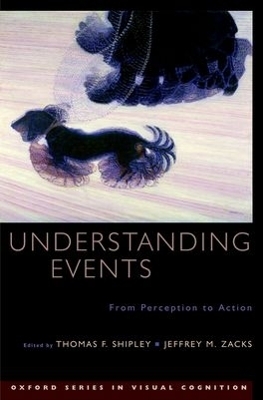
Understanding Events
From Perception to Action
Seiten
2008
Oxford University Press Inc (Verlag)
978-0-19-518837-0 (ISBN)
Oxford University Press Inc (Verlag)
978-0-19-518837-0 (ISBN)
This book is the first to bring together computational, neurological, and psychological research on how humans detect, classify, remember, and act on events. It provides a comprehensive collection of the latest research in these diverse fields.
We effortlessly remember all sorts of events - from simple events like people walking to complex events like leaves blowing in the wind. We can also remember and describe these events, and in general, react appropriately to them, for example, in avoiding an approaching object. Our phenomenal ease interacting with events belies the complexity of the underlying processes we use to deal with them. Driven by an interest in these complex processes, research on even perception has been growing rapidly. Events are the basis of all experience, so understanding how humans perceive, represent, and act on them will have a significant impact on many areas of psychology. Unfortunately, much of the research on event perception - in visual perception, motor control, linguistics, and computer science - has progressed without much interaction. This book is the first to bring together computational, neurological, and psychological research on how humans detect, classify, remember, and act on events. It provides professional and student researchers with a comprehensive collection of the latest reserach in these diverse fields.
We effortlessly remember all sorts of events - from simple events like people walking to complex events like leaves blowing in the wind. We can also remember and describe these events, and in general, react appropriately to them, for example, in avoiding an approaching object. Our phenomenal ease interacting with events belies the complexity of the underlying processes we use to deal with them. Driven by an interest in these complex processes, research on even perception has been growing rapidly. Events are the basis of all experience, so understanding how humans perceive, represent, and act on them will have a significant impact on many areas of psychology. Unfortunately, much of the research on event perception - in visual perception, motor control, linguistics, and computer science - has progressed without much interaction. This book is the first to bring together computational, neurological, and psychological research on how humans detect, classify, remember, and act on events. It provides professional and student researchers with a comprehensive collection of the latest reserach in these diverse fields.
PART I FOUNDATIONS; PART II DEVELOPING AN UNDERSTANDING OF EVENTS; PART III PERCEIVING AND SEGMENTING EVENTS; PART IV REPRESENTING AND REMEMBERING EVENTS
| Erscheint lt. Verlag | 6.3.2008 |
|---|---|
| Reihe/Serie | Advances in Visual Cognition |
| Zusatzinfo | 19 colour illustrations and 60 black and white illustrations |
| Verlagsort | New York |
| Sprache | englisch |
| Maße | 236 x 157 mm |
| Gewicht | 1143 g |
| Themenwelt | Geisteswissenschaften ► Psychologie ► Allgemeine Psychologie |
| Geisteswissenschaften ► Psychologie ► Entwicklungspsychologie | |
| Geisteswissenschaften ► Psychologie ► Test in der Psychologie | |
| Naturwissenschaften ► Biologie ► Humanbiologie | |
| Naturwissenschaften ► Biologie ► Zoologie | |
| ISBN-10 | 0-19-518837-3 / 0195188373 |
| ISBN-13 | 978-0-19-518837-0 / 9780195188370 |
| Zustand | Neuware |
| Informationen gemäß Produktsicherheitsverordnung (GPSR) | |
| Haben Sie eine Frage zum Produkt? |
Mehr entdecken
aus dem Bereich
aus dem Bereich
Techniken der Verhaltenstherapie
Buch (2024)
Julius Beltz GmbH & Co. KG (Verlag)
35,00 €


